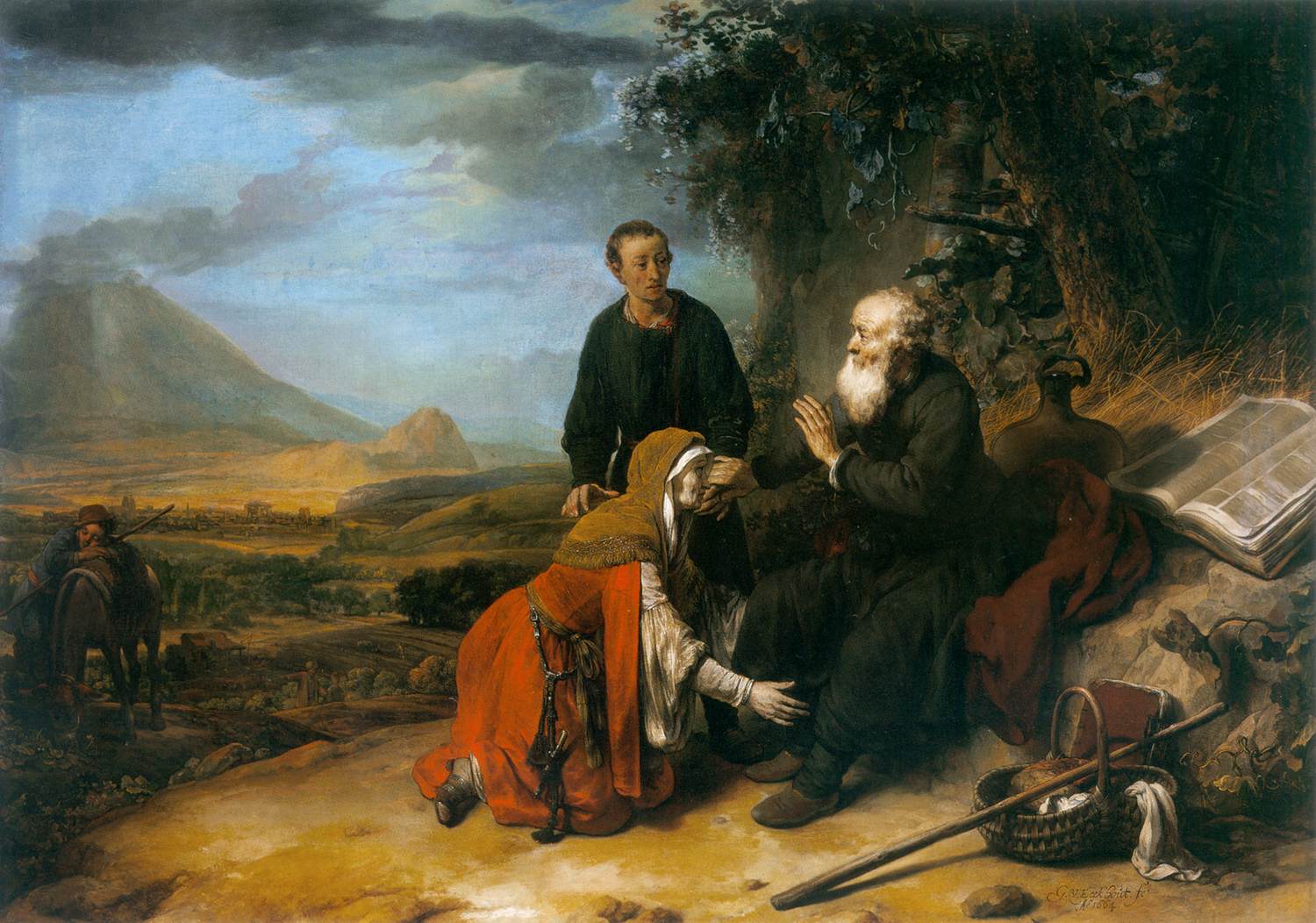Description
The painting Elisha and the Shunammite Woman by Gerbrand Van Den Eeckhout is a masterpiece of 17th-century Dutch Baroque art. The work shows a biblical scene in which the prophet Elisha visits a rich woman from the city of Shunem, who hosts him in her house and treats him with great kindness.
Van Den Eeckhout's artistic style is characteristic of the Dutch Baroque, with its emphasis on the realistic rendering of detail and the dramatic expression of emotion. The composition of the painting is very careful, with a symmetrical arrangement of the characters and meticulous attention to details of the landscape and architecture.
The paint color is vibrant and full of life, with a rich palette of warm, earthy tones that evoke the atmosphere of the Middle East. Light is another important element in the work, with a chiaroscuro effect that highlights the details and textures of the figures and objects.
The history of the painting is interesting in itself, as it is based on a passage from the Second Book of Kings in the Old Testament. The story tells how Shunem's wife, impressed by Elisha's wisdom and holiness, builds a special room in her house for the prophet to stay in when he visits the city. In gratitude, Elisha promises her that she will have a son, and so it happens.
A little known aspect of the painting is that Van Den Eeckhout was not only a painter, but also a scholar of Biblical history and literature. This is reflected in his attention to detail in the depiction of characters and objects, as well as his ability to capture the emotion and spirituality of the story.
In short, Elisha and the Shunammite Woman is a masterpiece of Dutch Baroque art that combines technique, beauty, and spiritual depth in a single painting. Its artistic style, composition, color, history, and little-known aspects make it a fascinating and enriching work of art to behold.

